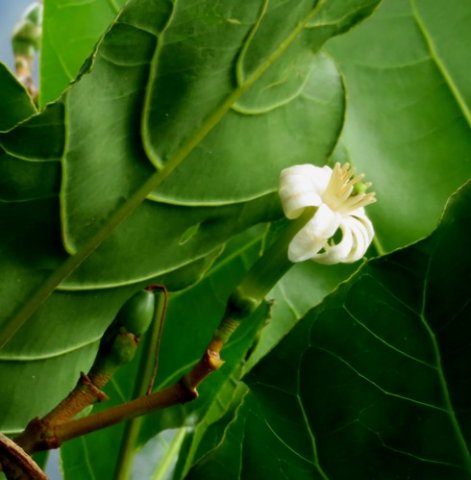Anthocleista grandiflora flower, fruit and leaf veins

Author: Ivan Lätti
Photographer: Thabo Maphisa
Behind the white corolla lobes of the Anthocleista grandiflora flower the cylindrical, green corolla tube emerges from its short, green calyx. The four calyx lobes are shallowly round-tipped.
Although these flowers are large and grow in clusters, they are often borne so high up in the tree that they may go unnoticed. This is not true as far as insects are concerned. They visit the flowers, eating and pollinating as they go, sometimes waylaid by insectivorous birds.
The living and the dead found on earth all have potential as food for something else. Ecologies are shaped by specific dietary and other proclivities, associated with a myriad of need-base interdependencies.
All of them together constitute nature, the most complex of transactional networks imaginable, dwarfing the global human economy to something comparatively small and simple (Coates Palgrave, 2002; Schmidt, et al, 2002; Venter and Venter, 1996).

